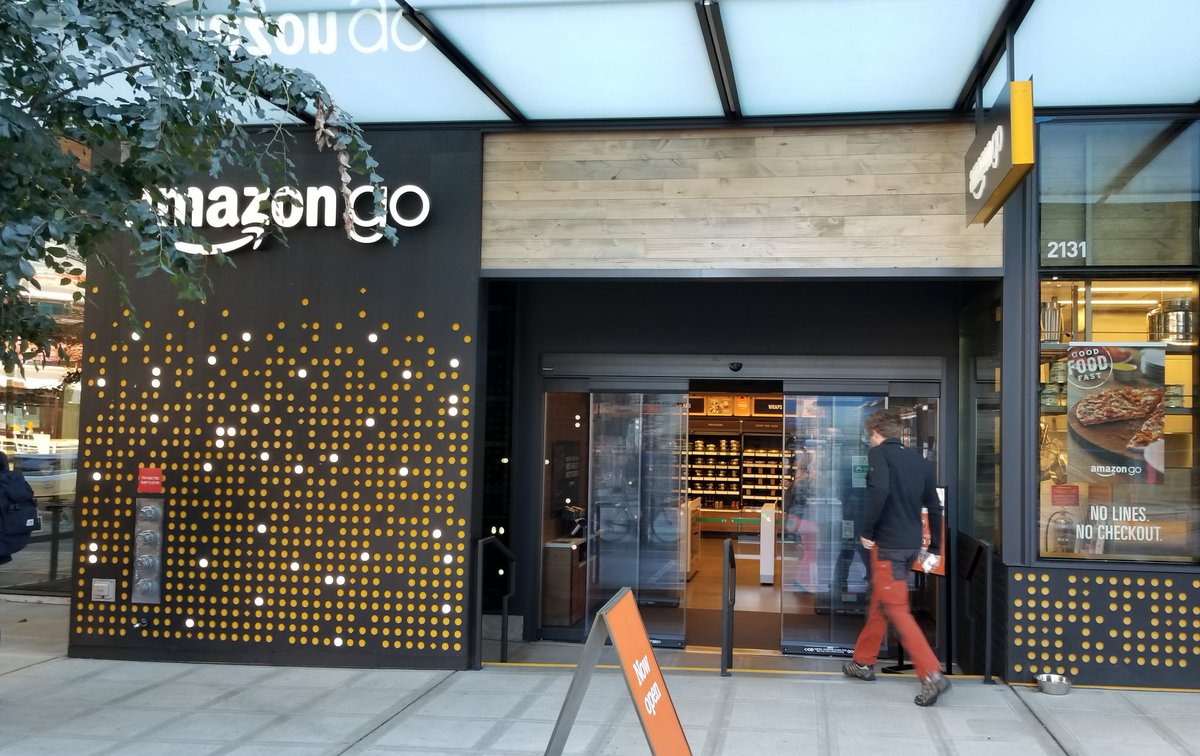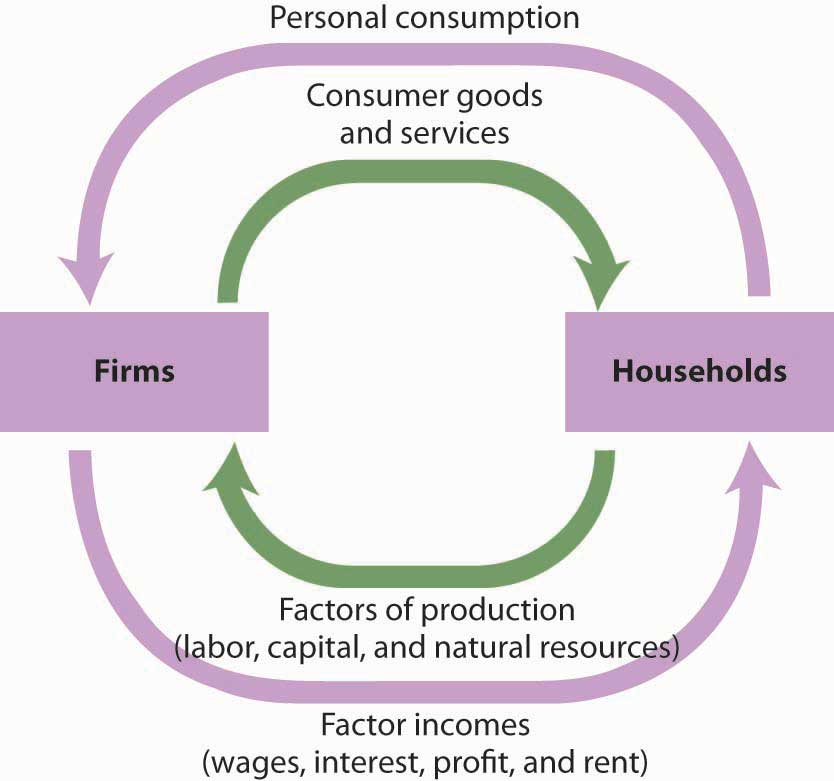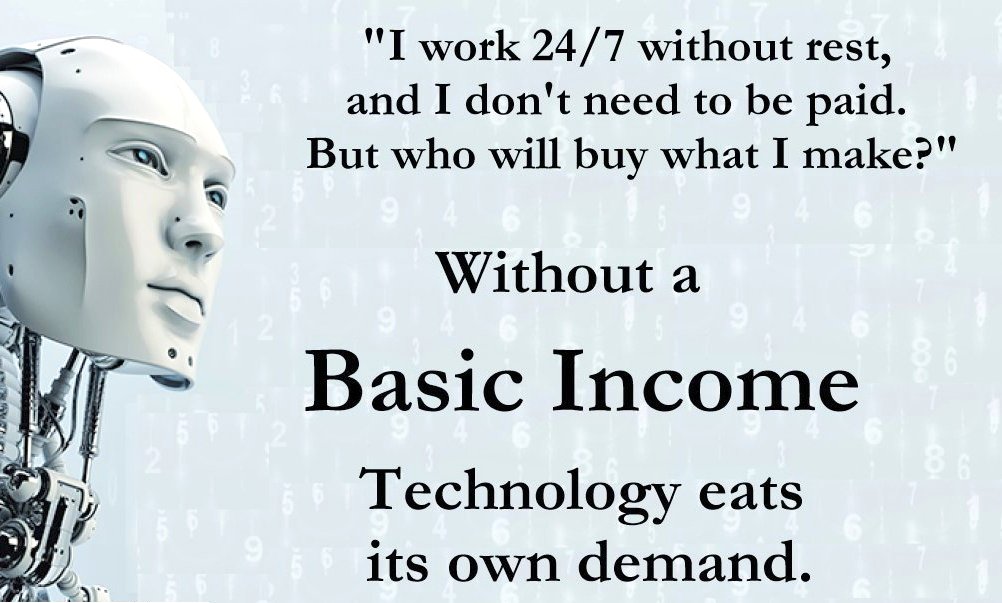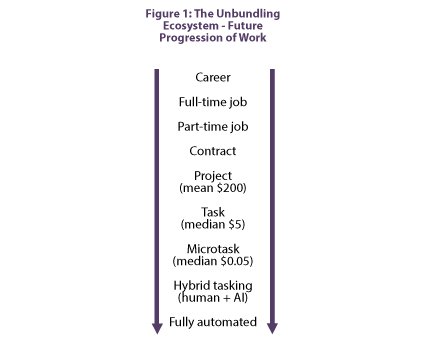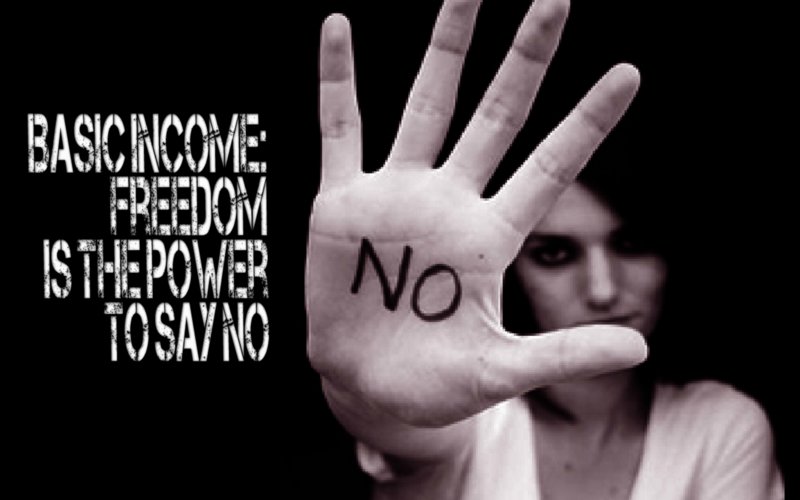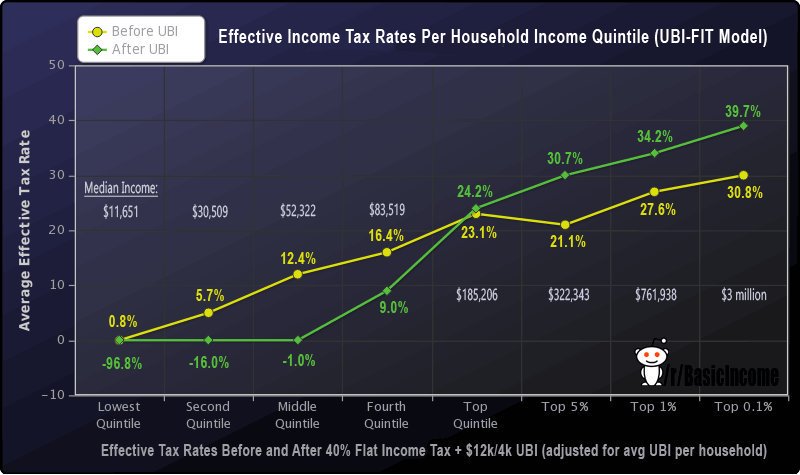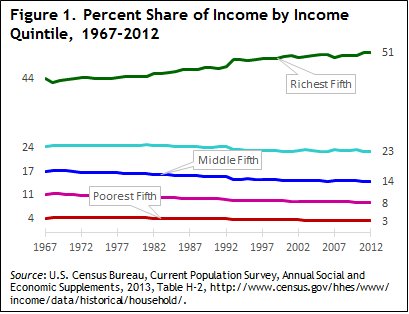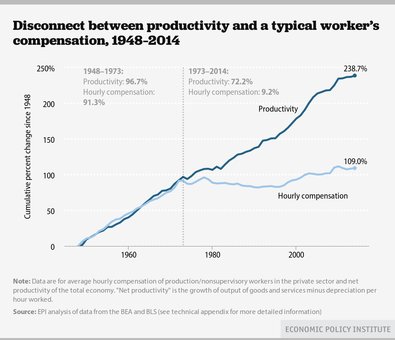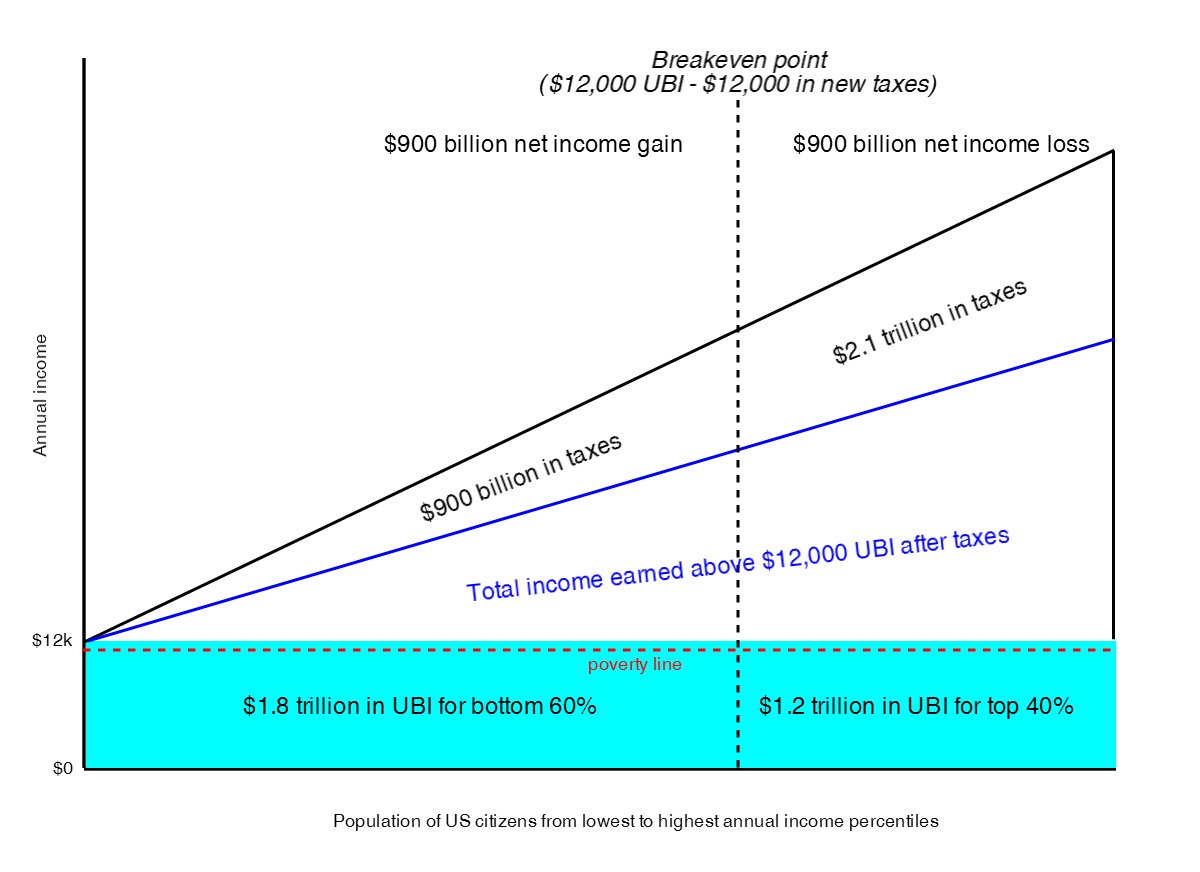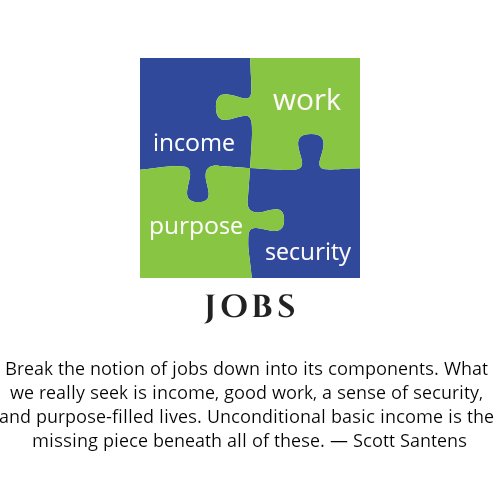You know how those who don't know any better can hug something to death? That's what those who love capitalism but hate #BasicIncome remind me of. Automation is here. We must now decouple income from work. Not implementing UBI means capitalism eats itself. Capitalism *needs* UBI. 
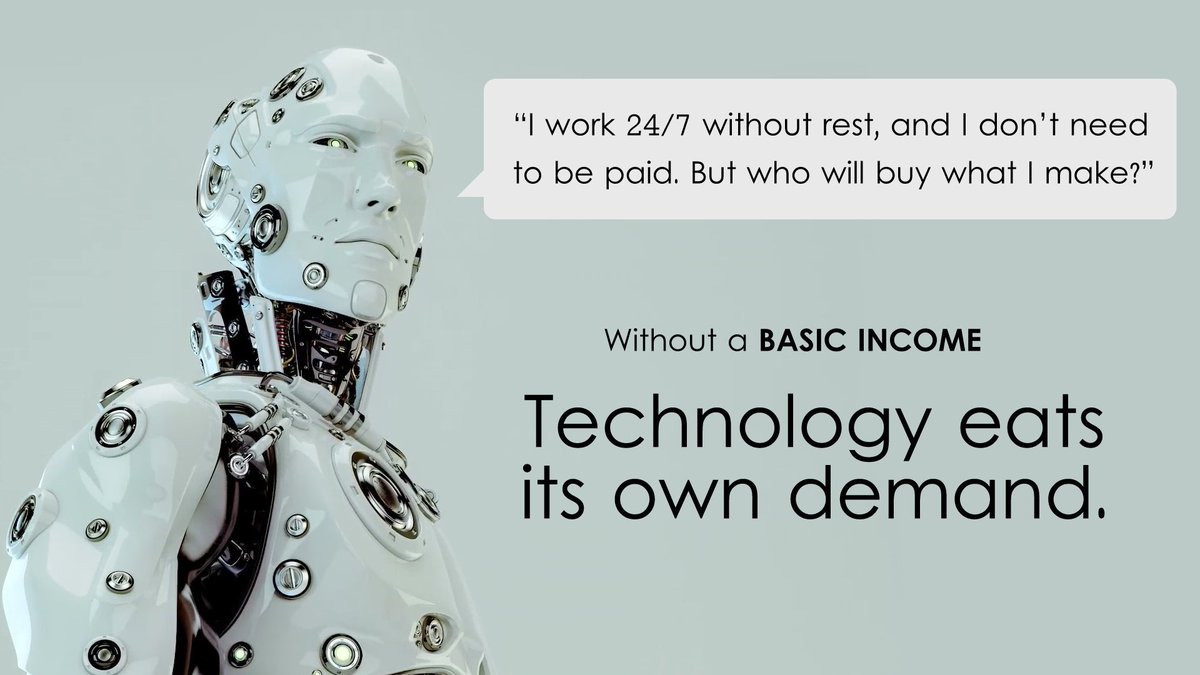
Meanwhile, those who hate capitalism and want it to die, and who subsequently don't like UBI because it will save capitalism, are like butterfly lovers who hate caterpillars who believe caterpillars should die. Yes UBI will save capitalism, but from UBI postcapitalism can emerge.
So again, #BasicIncome is not left or right, it's forward. If the right prevents UBI, the economy will become starved of currency for market exchanges. If the left prevents UBI, they may get revolution, but mass suffering will occur, and fascism may result instead of socialism. 
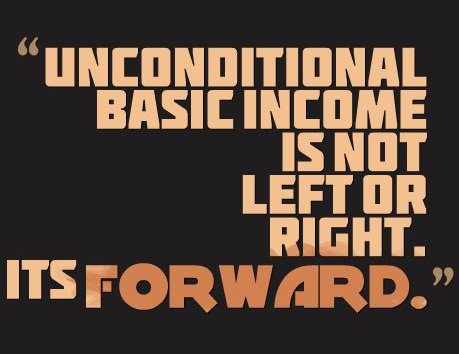
We need to look at our collective future through a bipartisan lens and realize that #BasicIncome is in the best interests of the entire political spectrum. UBI is something everyone can work together to achieve and it's important enough for all to negotiate compromises to enact.
What kind of compromises do I mean? I mean like the left agreeing to give up minimum wage laws in exchange for the right agreeing to a higher #BasicIncome. Or like the right agreeing to full unconditionality in exchange for the left agreeing to eliminate welfare like SNAP & TANF.
When it comes to #BasicIncome it's like we're all a bunch of blind people feeling different parts of the same elephant. We feel we're touching entirely different things, but it's all the same animal from different perspectives. By working together, we can create the optimal UBI. 
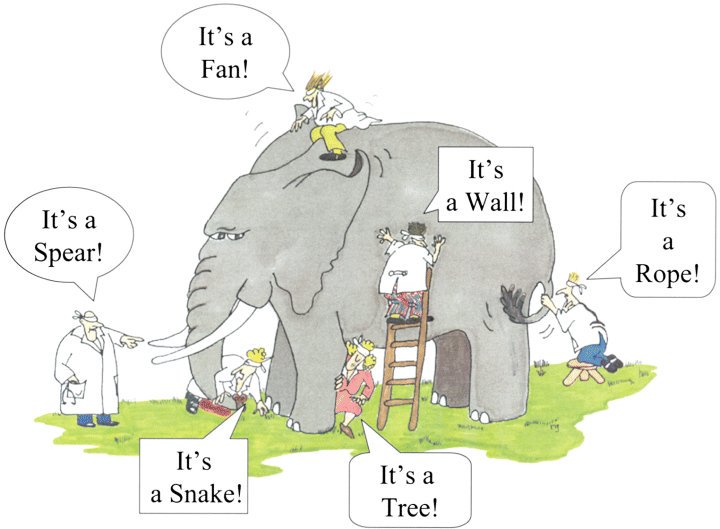
We need each other to make #BasicIncome happen. Yes, different politics want different looking UBI policies, but in my opinion, the best possible UBI will be the one that no one political perspective thinks is best. All sides are correct about some details and wrong about others.
It is also absolutely imperative that #BasicIncome not become a partisan faith-based issue as climate change did. We don't have time for that shit. We needed UBI yesterday, not years from now. So we all need to work together and recognize we aren't enemies. The enemy is poverty…
The enemy is economic insecurity.
The enemy is extreme inequality.
The enemy is chronic stress.
The enemy is fear.
The enemy is government by the 1% for the 1%.
The enemy is taxation without representation.
We have enough real enemies to recognize we're on the same side.
The enemy is extreme inequality.
The enemy is chronic stress.
The enemy is fear.
The enemy is government by the 1% for the 1%.
The enemy is taxation without representation.
We have enough real enemies to recognize we're on the same side.
Time is running out. We have got to get our shit together and create a firm economic floor of financial security underneath every single one of us before the ties that bind us fray to the point society begins to violently break down. With UBI we can avoid that and instead thrive.
With our minds freed of the burden of all the thinking devoted to just figuring out how to survive each day, we all together open a door to an entirely different future, where scarcity gives way to abundance, and surviving gives way to thriving.
Left or right, ALL OF US CAN WIN.
Left or right, ALL OF US CAN WIN.

None of this is to say that UBI is the answer to everything. Of course it isn't, but I also shouldn't have to say that, because it's not a measuring stick we use for anything else. UBI won't solve everything, but without it, much of what we need to solve will remain unsolvable.
@threadreaderapp unroll
• • •
Missing some Tweet in this thread? You can try to
force a refresh


